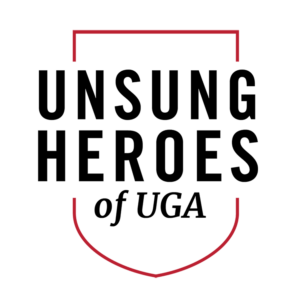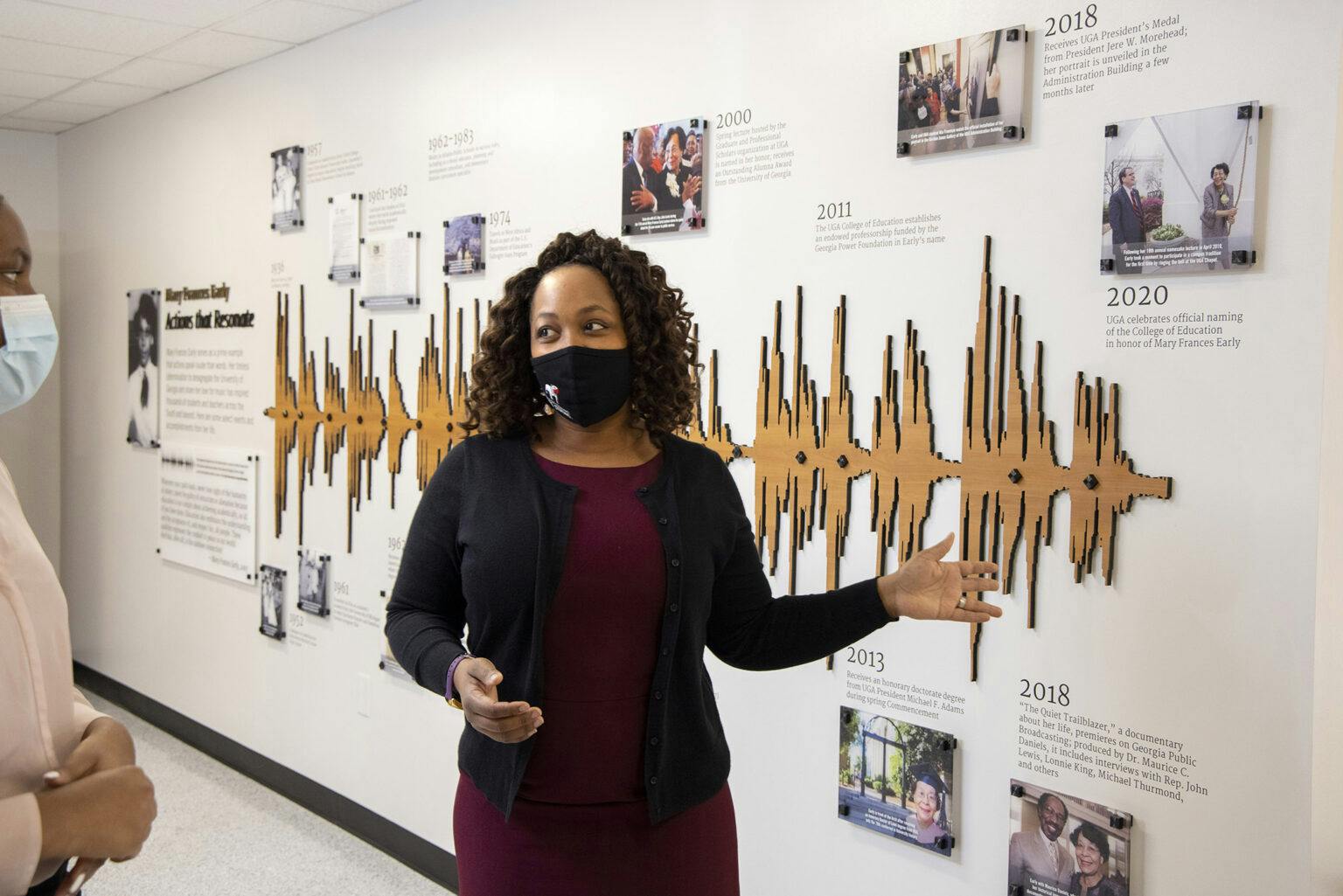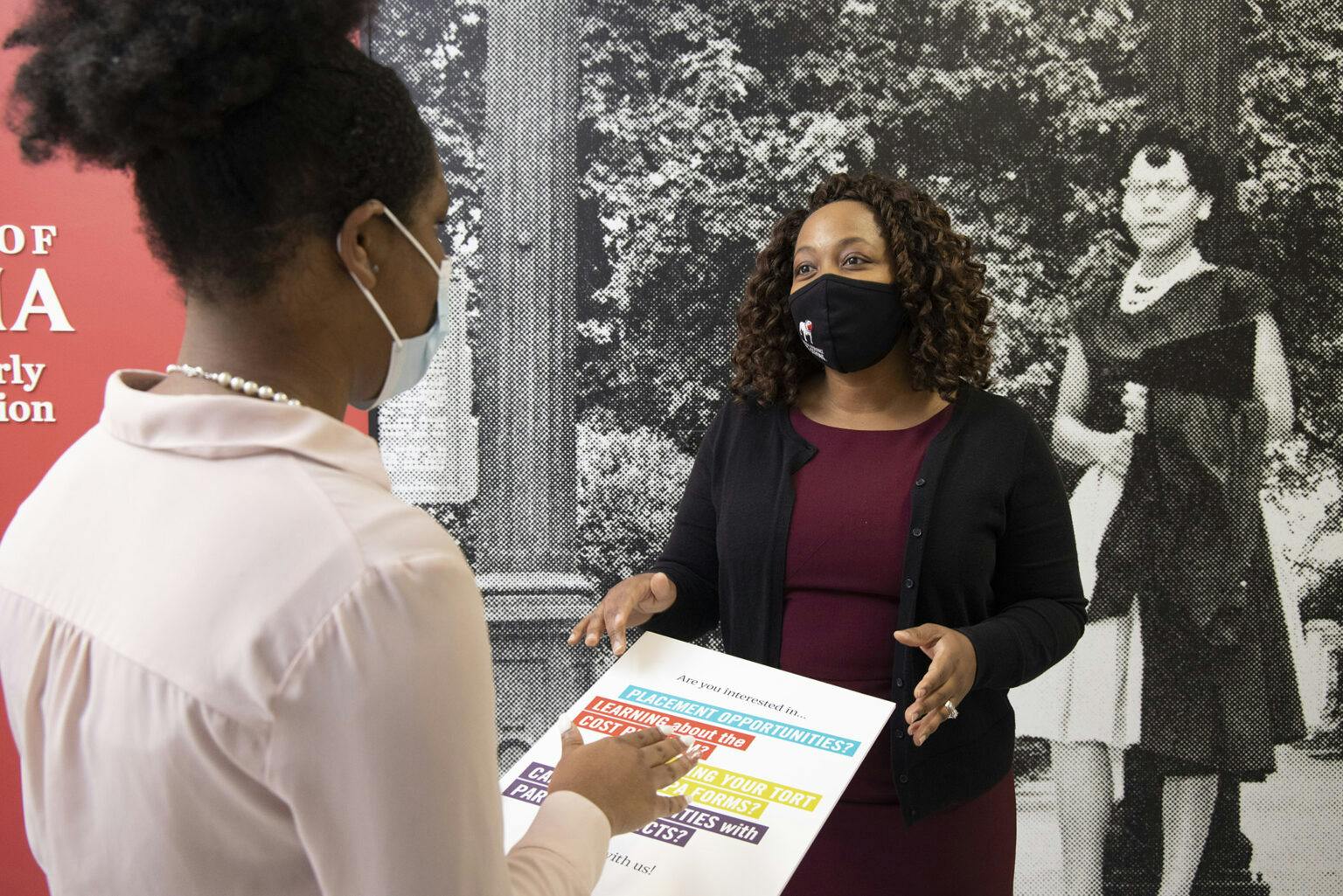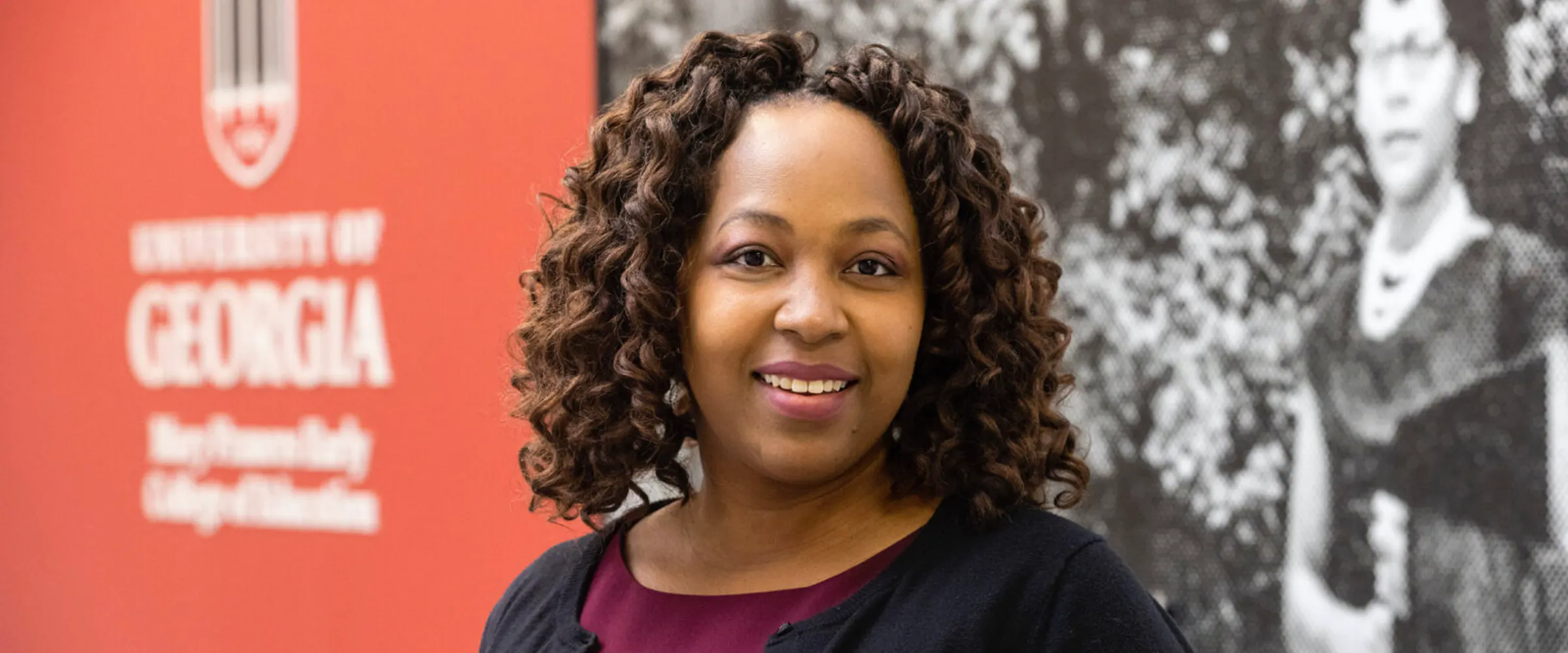Making student teaching work during a pandemic
When Taiesha Smith took the job as director at the Mary Frances Early College of Education’s Office of Experiential Learning a year and a half ago, she set about modernizing by taking the office digital. “All forms required for field placement approval were converted into documents that could be completed online,” she said. She didn’t realize that she was creating a perfect platform to deal with the onslaught of changes and cancellations and volume of information that would soon be necessary to get out quickly during a pandemic.

In regular, non-COVID times, her office is in charge of placing students in real life teaching situations and internships throughout Georgia. She works with seven of the 20 teacher prep programs within the college. Smith and her team are responsible for matching teacher candidates and interns with the right mentor so that they can complete their clinical practice and earn credit hours toward certification.
Getting approximately 300 UGA students placed at one of more than 180 partner sites is like a giant logistics puzzle. Not only that, placements need to be in the right field among an array of choices including counseling, special education and CABER (Center for Autism and Behavioral Education Research).
Then COVID hit, a whole different level of challenges arrived in the form of new policies, changing schedules and school closings. Some students had to have their placements rescheduled as many as five times. But they did indeed find their places, thanks to Smith’s calm efficiency and the digital system she’d already put in place.

“We went live document crazy,” she said. The system she created tracks real-time information on a huge number of variables including which schools require masks, which are virtual or hybrid and who is going where. Faculty can track changes as they happen and if a placement is canceled, they can immediately see what other options might be open for their students. Putting the forms online eliminated paper forms, phone calls and other low-tech slowdowns in the office’s ability to respond quickly. “Had I not switched it all online before COVID, it would have been a lot more hectic.”
Smith and her team reacted swiftly to all of the ever-shifting circumstances that arose because of the pandemic. “Initially, there were students who were not able to be placed, so we thought about placements differently. We started reaching out and making partnerships with state institutions that had virtual teaching and internship opportunities for our students,” said Smith, who made sure to credit her team – Anna Hiers and Sarah Tschari – for the smooth rollout under bumpy conditions.

What’s her secret to doing her job with, as one co-worker described it, “incredible efficiency, grace and good humor”?
“My secret is that I’m an educator at heart,” said Smith, who wanted to be a teacher since childhood. “My mom told me I was always teaching my baby dolls something,” she laughed. “I can sympathize with the teachers that we work with in our partner districts, so I’m always trying to think about how to help make our partnership more mutually beneficial. I’m able to see what we can do on our end to make things better and ultimately prepare these students to go out into the world and become the next generation of teachers, counselors and speech language pathologists.”
